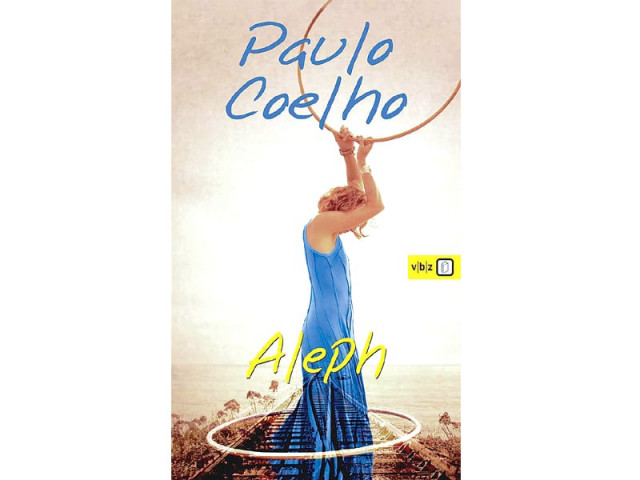Book review: Aleph - bon Voyage with Paulo Coelho
The book is so engaging that readers will not want to put it down for even a fraction of a second.

Book: Aleph
Author: Paulo Coelho
Publisher: HarperCollins
Excerpt
I’m exaggerating. If we seek something, that same thing is seeking us.
Nevertheless, you have to be prepared for everything. At this point, I make the decision I’ve been needing to make: even if I find nothing on this train journey, I will carry on, because I’ve known since that moment of realization in the hotel in London that although my roots are ready, my soul has been slowly dying from something very hard to detect and even harder to cure.
Routine.
Routine has nothing to do with repetition. To become really good at anything, you have to practise and repeat, practise and repeat, practise and repeat, until the technique becomes intuitive. I learned this when I was a child, in a small town in the interior of Brazil, where my family used to spend the summer holidays. I was fascinated by the work of a blacksmith who lived nearby. I would sit, for what seemed like eternity, watching his hammer rise and fall on the red-hot steel, scattering sparks all around, like fireworks. Once he said to me:
‘You’ll probably think I’m doing the same thing over and over, don’t you?’
‘Yes,’ I said.
‘Well, you’re wrong. Each time I bring the hammer down, the intensity of the blow is different. Sometimes it’s harder, sometimes it’s softer. But I only learned that after I’d been repeating the same gesture for many years, until the moment came when I didn’t have to think, I simply let my hand guide my work.’
I’ve never forgotten those words.
The book begins with a confession of one’s perennially failing attempts to connect to one’s soul. Subsequently, it traverses a world of symbols, signs, intuition and adventure and ends with a rendezvous with one’s inner self — one’s own soul. Just like the writer’s international bestseller, The Alchemist, his newly published Aleph focuses on a personal and a physical journey; the only stark difference between The Alchemist and Coelho’s latest story is that the latter’s author is the protagonist. However, this does not imply that the Aleph has nothing new to offer to its readers, as far as its story-line is concerned.
The story presents a purely autobiographical account of the author’s journey across the Trans-Siberian Railway, which passes through seven different time zones and is one of the longest railway networks in the world. Coelho presents the niceties of the journey — ranging from the constant lurching of the vehicle and the racket caused by the friction of the wheels against the rails, to the bothersome occasions of a sleep disrupted by the tumultuous halts and departures coupled with the constant jerks — in vivid, captivating detail.
Other elaborate passages in the book also engage the reader; in fact they increase the reader’s interest in the 300-page memoir. The book is so engaging that readers will not want to put it down for even a fraction of a second. As the author sets out on his journey, the reader gets the sense that, he too, is embarking on the same voyage with the writer. But this journey is not without a purpose; in fact to understand fully the author’s primary objective underpinning his decision to travel is an ardous exercise in itself. Like Paulo’s other literary masterpieces, Aleph is also inundated by philosophical and spiritual ideas, which are often difficult to comprehend, despite the simplicity of words used to describe them.
Published in The Express Tribune, October 1st, 2011.



















COMMENTS
Comments are moderated and generally will be posted if they are on-topic and not abusive.
For more information, please see our Comments FAQ